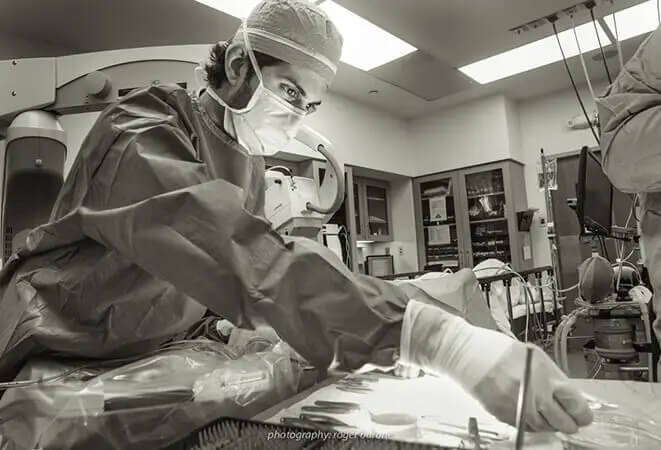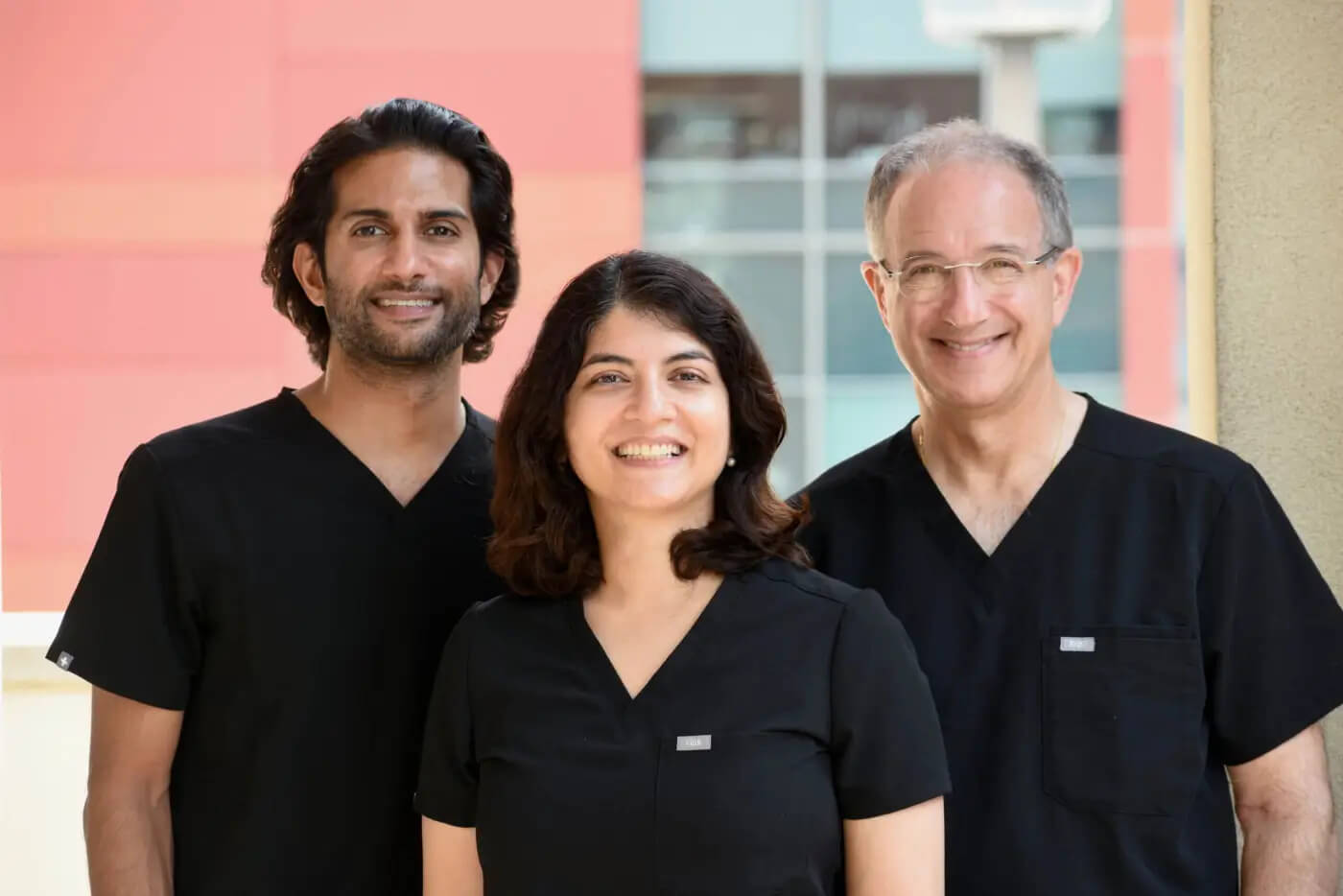Medical Services
CORNEA
Wills Eye cornea specialists are world leaders in corneal surgery and perform a wide range of state-of-the-art procedures.
Medical Services
Wills Eye cornea specialists are world leaders in corneal surgery and perform a wide range of state-of-the-art procedures.
Trusted Experience and Expertise
Wills Eye cornea specialists are dedicated to improving vision, preventing corneal and external diseases of the eye, and providing the best patient care available. Each patient is carefully examined by one or more physicians and then given an individualized treatment plan based on the latest and best therapies. The Cornea Service includes a full-time staff of attending surgeons, fellows, and residents.
The Cornea Service of Wills Eye Hospital treats patients with cornea diseases and disorders of the outer layers of the eye, including the conjunctiva and sclera. Additionally, we treat conditions affecting the anterior segment of the eye, including cataracts and dislocated intraocular lenses. Finally, we are involved in the latest refractive surgery procedures to treat nearsightedness, astigmatism, and farsightedness, including PRK and LASIK.

The cornea is your eye’s clear, protective outer layer. Along with the sclera (the white of your eye), it serves as a barrier against dirt, germs, and other things that can cause damage.
Wills Eye Cornea specialists treat all corneal conditions. We also treat many patients with symptoms of eye dryness and grittiness, often caused by ocular or eyelid inflammation. We see many patients with corneal infections (often from contact lens use and trauma), herpes simplex eye infections, and herpes zoster eye infections (the virus that causes shingles).
Fuchs' dystrophy is a condition where the endothelial cells on the back layer of the cornea are not normal. Healthy endothelial cells are required to keep the cornea clear.
Keratoconus is a condition in which the cornea (the clear covering of the colored iris and black pupil) becomes protruded and irregular, affecting vision.
Surface layers of the eye are covered with a layer called the epithelium. Damage to the epithelium can cause pain, redness, poor vision, and permanent injury. Related conditions include Dry Eye and Blepharitis.

Refractive surgery is used to correct or improve your vision for refractive errors such as nearsightedness (myopia), farsightedness (hyperopia), astigmatism, or presbyopia.
Refractive surgery is a short, painless procedure that reduces or eliminates the need for glasses and contacts to correct nearsightedness (myopia), farsightedness (hyperopia), and astigmatism. At Wills Eye Hospital, we offer many forms of refractive surgery, including custom laser vision correction (LASIK and PRK), implantable collamer lens surgery, and refractive lens exchange.
Treatment options are carefully tailored to the needs and lifestyles of each individual patient. Your Wills Eye refractive surgery experience includes a pre-procedure visit and thorough examination, the procedure itself, and follow-up care, all performed by a Wills Eye board-certified ophthalmologist to ensure the best possible results.
Like LASIK, PRK is a laser refractive surgery that reshapes your cornea to correct nearsightedness (myopia), farsightedness (hyperopia), and astigmatism.
Implantable Collamer Lens (ICL) surgery is a vision correction procedure that is FDA-approved to treat nearsightedness (myopia) and astigmatism in the United States.
Refractive lens exchange is a surgical procedure that involves carefully removing the natural lens in the eye through a small incision and replacing it with an artificial intraocular lens implant.

The anterior segment of the eye encompasses the cornea, iris, lens, and aqueous humor, which provides nutrients to the avascular cornea and lens.
The anterior segment refers to the front-most region of the eye, and includes the cornea, iris, and lens. Typically, the phrase “anterior segment surgery” refers to surgery performed on the iris and lens (either natural lens, or synthetic intraocular lens placed during cataract surgery). Many forms of pathology including inherited conditions or trauma can affect the iris or lens and require medical or surgical correction. In addition, some patients may have had a complication from a previous cataract surgery, requiring additional anterior segment surgery to improve visual outcomes.
Wills Eye cornea specialists perform a wide range of anterior segment surgeries, as indicated below.
Sometimes, the intraocular lens that was placed in the eye at the time of cataract surgery may shift position.
There are several options in cases of dislocated intraocular lenses.
In some cases of cataract surgery, the surgeon does not feel it is safe to insert an intraocular lens into the eye. This generally happens in cases of complicated cataract surgery. When this happens, the patient is often scheduled for a second surgery for lens insertion.
The Cornea Service of Wills Eye Hospital is home to some of the top specialists in the USA. We treat patients with disorders of the cornea and outer layers of the eye, including the conjunctiva and sclera.
Please contact us today to make an appointment.

Online Appointment Request: Click here
840 Walnut Street, Suite 920
Philadelphia, PA 19107
Monday through Friday, 8 a.m.–4:30 p.m.
CHIEF: Christopher J. Rapuano, MD
FELLOWSHIP DIRECTOR: Kristin Hammersmith, MD
FELLOWSHIP CO-DIRECTORS:
Brandon D. Ayres MD
Zeba A. Syed, MD
